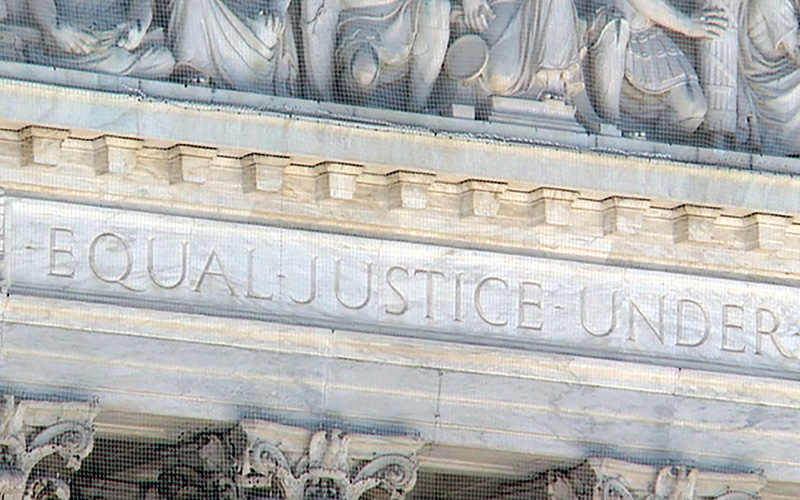WASHINGTON – An eight-member Supreme Court quizzed both sides Monday in an Arizona case that asks whether small government agencies should be exempt from age discrimination laws, just as small businesses are.
A lower court said they should not, that a government agency of any size should be subject to the law – a ruling that would be “financially crippling” for cash-strapped agencies if allowed to stand, said one advocate challenging the ruling.
The case began in 2009, when the Mount Lemmon Fire District laid off Capts. John Guido and Dennis Rankin, who happened to be the two oldest firefighters in the department at the time. They filed a claim with the Equal Employment Opportunity Commission, citing the Age Discrimination in Employment Act.
But the fire district argued in court that Guido, 46 at the time of the layoff, and Rankin, then 54, were let go not for their age but because they had not participated in volunteer wildland assignments.
The fire district went on to argue that the age discrimination law should not apply to it because it had 13 employees at the time of the layoffs, well below the 20-worker threshold under which a private firm is exempt from the law.
A district court agreed with the fire district. But a panel of the 9th U.S. Circuit Court of Appeals reversed that ruling in June 2017, a ruling at odds with four other circuit courts. That sparked the appeal that led to Monday’s arguments before the Supreme Court.
Guido and Rankin “believed that the definition of employer does not require any particular number of employees in order to cover government entities such as Mount Lemmon Fire district,” said Don Awerkamp, one of the attorneys representing them.
The Age Discrimination in Employment statute defines employer as “a person engaged in an industry affecting commerce who has twenty or more employees for each working day.” It goes on to say that employer “also means (1) any agent of such a person, and (2) a State or political subdivision of a State and any agency or instrumentality of a State or a political subdivision of a State.”
-Cronkite News video by Lillian Donahue
Joshua Rosenkranz, an attorney for the fire agency, argued Monday that the word “also” in the law could be defined as “in addition,” as well possibly meaning “further elaboration of the preceding definition, along the lines of ‘moreover’ or ‘incorporates.'”
That line of reasoning did not appear to sway Justice Neil Gorsuch.
“If we take the best dictionary definition, ‘in addition to,’ the normal meaning, do you lose or do you have some other available argument?” Gorsuch asked. “I’d be delighted to hear it if you do.”
Rosenkranz told the justices that if the 9th Circuit ruling was allowed to stand, it would allow employees and employers to be sued in similar cases, which he said could be “disastrous.”
“If the court reads it (the statute) the way the government reads it, then that will open up liability to thousands and thousands and thousands and thousands of public entities around the country that have 19 or fewer employees,” Jeff Matura, one of Mount Lemmon Fire District attorneys, said after Monday’s hearing.
The case has drawn support from of governmental associations who argue that Congress explicitly intended to carve out small agencies as well as businesses. Amanda Kellar, director of legal advocacy at International Municipal Lawyers Association, said the 9th Circuit ruling “can be really financially crippling for an extremely cash-strapped special district in employment liability.”
“It’s just a balancing that Congress has done in the context of these anti-discrimination statutes by saying, ‘Look, if you fall below a certain threshold of employees, we understand that this can really wipe you out. And so we’re just not going to include you within the definition of an employer,'” Kellar said.
Because the Senate has yet to approve Brett Kavanaugh’s nomination to fill the seat vacated by Justice Anthony Kennedy, the court heard the Mount Lemmon case with just eight justices. Even if he is eventually approved, Kavanaugh would have no role in the case, leaving the possiblity of a 4-4 tie on the court – which would let the circuit court ruling stand.
But Awerkamp is not worried. He said the EEOC and the 9th Circuit got it right, and he expects the Supreme Court to agree.
“Then we will have to take the case to trial, but we think it’s pretty clear that we’ll win when we get to that point,” he said.
Follow us on Twitter.
